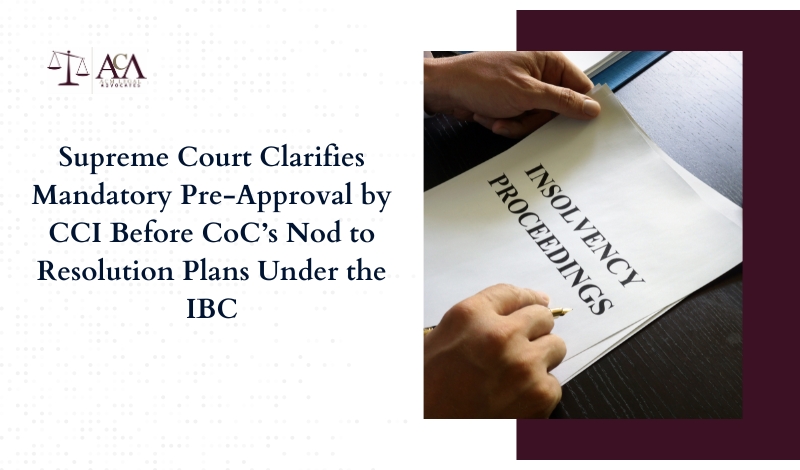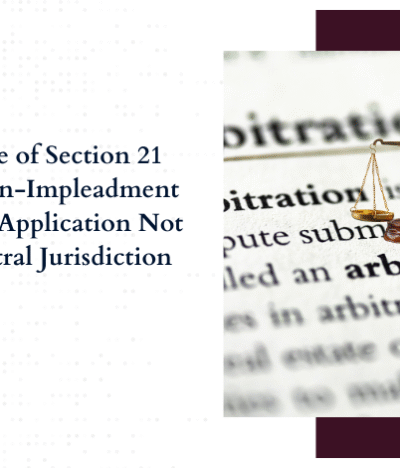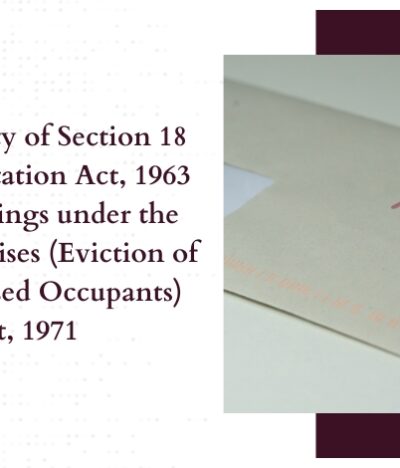In a pivotal decision that reshapes the contours of regulatory compliance in insolvency proceedings, the Hon’ble Supreme Court of India, in Independent Sugar Corporation Ltd. v. Girish Sriram Juneja, 2025 SCC OnLine SC 181, has authoritatively interpreted the interplay between the Insolvency and Bankruptcy Code, 2016 (“IBC” or “Code”), and the Competition Act, 2002 (“Competition Act”). By a 2:1 majority, the Court held that the requirement under the proviso to Section 31(4) of the Code—mandating prior approval of the Competition Commission of India (“CCI”) in cases involving combinations—is not merely directory but mandatory. This ruling effectively mandates that no resolution plan contemplating a combination can be placed before the Committee of Creditors (“CoC”) unless such plan has first secured CCI’s approval.
Factual Background
The dispute stems from the corporate insolvency resolution process (“CIRP”) of Hindustan National Glass and Industries Ltd. (“HNGIL”), a dominant player holding approximately 60% of India’s market share in the glass packaging sector. During the CIRP, AGI Greenpac Ltd. (“AGI”), the second-largest entity in the same sector, submitted a resolution plan that proposed a combination with HNGIL. The potential post-combination market share was estimated to reach 80–85% in the food and beverage segment and 45–50% in the alco-beverage segment—figures that raised potential appreciable adverse effects on competition (“AAEC”) under the Competition Act.
Despite the competitive concerns, the CoC approved AGI’s resolution plan on October 28, 2022. Thereafter, the CCI granted its approval on March 15, 2023, subject to modifications including a revised divestment proposal by AGI. Subsequently, the resolution plan secured approvals from the National Company Law Tribunal (“NCLT”) and the National Company Law Appellate Tribunal (“NCLAT”).
Challenge by Unsuccessful Bidders
Independent Sugar Corporation Ltd. (“INSCO”), an unsuccessful resolution applicant, along with others, challenged both the CoC’s approval of the plan and the CCI’s decision. Their primary contention was that the proviso to Section 31(4) of the Code obliges resolution applicants to obtain CCI approval prior to CoC approval, failing which the entire resolution plan stands vitiated. They argued that the statutory mandate cannot be diluted or waived by either the resolution professional (“RP”) or the CoC. Moreover, it was alleged that AGI’s submissions to the CCI were misleading and that procedural safeguards under the Competition Act, such as issuance of show-cause notice and public consultations, were bypassed.
Respondents’ Defence and Statutory Interpretation
In response, AGI, the RP, the CoC, and the CCI argued that the proviso to Section 31(4) of the Code was to be construed as directory rather than mandatory. They asserted that the approval of the CCI could be obtained at any point prior to the final sanction of the resolution plan by the NCLT. According to the respondents, a mandatory reading of the proviso would result in delays and procedural bottlenecks that run contrary to the IBC’s objective of time-bound resolution of distressed assets. Emphasis was also placed on the absence of any express penal consequence for non-compliance within the statutory framework, and reliance was placed on NCLAT precedents that previously upheld such an interpretation.
Statutory Scheme and Legislative Intent
The Supreme Court undertook a detailed examination of the relevant provisions of both statutes. Sections 5 and 6 of the Competition Act govern combinations, while Section 31(4) of the Code—introduced via the 2018 amendment—creates a carve-out specifically for combinations requiring prior CCI approval. The Court noted that the Competition (Amendment) Act, 2023, had reduced the outer limit for CCI’s approval from 210 days to 150 days, thereby aligning with the Code’s objective of speedier resolution.
Furthermore, the Insolvency and Bankruptcy Board of India (Insolvency Resolution Process for Corporate Persons) Regulations, 2016, require that resolution plans detail all statutory approvals. However, prior to the 2018 amendment, no specific timeline was prescribed for such approvals. The Insolvency Law Committee, in its recommendations, acknowledged the need for segregating CCI approval from other governmental approvals owing to its competition-sensitive nature. Hence, the proviso to Section 31(4) was inserted, clearly stipulating that if a resolution plan involves a combination under Section 5 of the Competition Act, the resolution applicant must obtain CCI’s approval prior to CoC’s consideration.
Judicial Verdict and Ratio Decidendi
Applying the literal rule of statutory interpretation, the Supreme Court held that the use of the expressions “shall” and “prior to” in the proviso to Section 31(4) unambiguously points towards a mandatory obligation. The majority further noted that any other interpretation would dilute the legislative intent and lead to adverse consequences, including retrospective invalidation of combinations with potential anti-competitive outcomes.
It was held that neither the RP nor the CoC is vested with the authority to overlook or relax this statutory mandate. Their obligation is to ensure that all resolution plans tabled before the CoC are legally compliant. Consequently, the resolution plan approved by the CoC without prior CCI clearance was declared invalid. The Court annulled all subsequent approvals and directed that the status quo ante be restored. The CoC was asked to re-evaluate resolution plans, including AGI’s, only if CCI approval was secured as of October 28, 2022—the date of the original CoC vote.
Legal Implications and Way Forward
This judgment marks a decisive shift in how regulatory approvals, particularly under the Competition Act, must be sequenced within the corporate insolvency resolution framework. By holding that the proviso to Section 31(4) of the Code is mandatory, the Supreme Court has re-emphasised that resolution plans involving combinations must undergo ex ante scrutiny by the CCI before receiving the CoC’s nod. This ensures that anti-competitive concerns are addressed at the earliest stage, thereby preserving the integrity of both insolvency and competition law regimes.
The verdict casts a shadow on several CIRPs where resolution plans involving combinations may have bypassed this procedural safeguard. Such plans may now face judicial scrutiny or be sent back for reconsideration. Additionally, the Court’s interpretation raises a pertinent issue regarding the retrospective application of the ruling, as highlighted in the review petition filed by AGI. AGI has contended that the judgment, by operating retrospectively, creates regulatory uncertainty and jeopardises already-concluded resolution processes.
Practical Consequences for Stakeholders
Resolution applicants now need to recalibrate their strategy to ensure that CCI approval is obtained well before submitting resolution plans to the CoC. Although this may elongate the resolution process and increase transaction costs, it brings procedural rigour and legal certainty. Regulatory compliance is no longer an administrative step to be addressed post-CoC approval; rather, it forms a critical pre-condition.
Resolution professionals and CoCs will also need to exercise greater diligence to ensure compliance with the statutory framework. The ruling may result in interim disruption but is ultimately aligned with the Code’s objective of transparent, efficient, and legally compliant resolution of stressed assets.
Conclusion
The Supreme Court’s ruling in Independent Sugar Corporation Ltd. v. Girish Sriram Juneja settles a long-standing ambiguity concerning the sequencing of CCI approval in resolution plans involving combinations. By mandating prior approval from the CCI, the Court has fortified the principle that commercial expediency cannot override statutory compliance. While the decision may initially pose challenges for stakeholders navigating insolvency proceedings, it ultimately strengthens the institutional architecture governing insolvency and competition in India. As the legal community awaits the outcome of the pending review petition, this decision will serve as a crucial precedent for all future resolution plans involving market consolidations.






